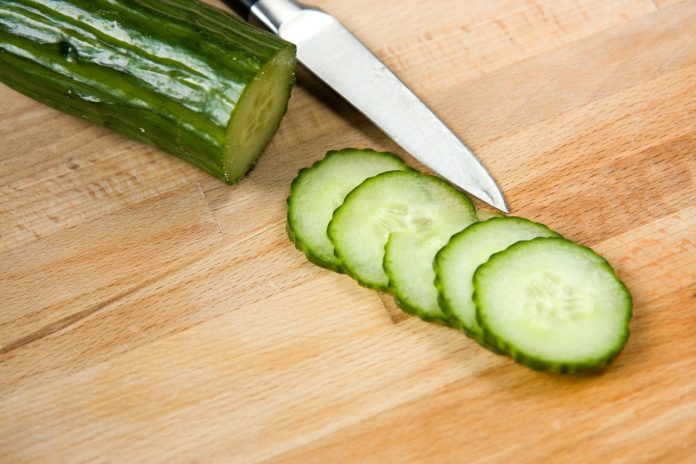The salmonella outbreak associated with fresh cucumbers that started this summer appears to be winding down. However, Canadian officials say 5 more people have become ill in British Columbia.
Earlier this month, the Public Health Agency of Canada issued a public health notice over a salmonella outbreak linked to long English cucumbers.
The earlier notice, which was released on November 2nd , stated over 50 people across the country had been infected with illness, and 42 of them were British Columbians.
In an update on Tuesday, the health agency said that five more people had become sick, and most of them were from BC once again.
While there have been more infections, the update says there has been a decrease in in the number of cases being reported.
With fewer reports, the health agency believes that the outbreak is winding down.
Background
The outbreak has reached five provinces, affecting 47 people in British Columbia, 5 in Alberta, 1 in Saskatchewan, 1 in Manitoba, and 1 in Quebec.
That being said, according to the health agency the individual from Quebec reported traveling to British Columbia before becoming ill.
The first cases of salmonella appeared in the summer, and these almost 60 individuals became sick between mid-June and late-October. Eleven of the cases were serious enough to require hospitalization, but no deaths have been reported. The majority of cases (60%) are female.
“The outbreak investigation remains active and the Public Health Agency of Canada will continue to monitor for new cases,” reads the update.
“The public health notice will be updated if there is any new information about the source of contamination or when the investigation closes.”
Tips to protect yourself
In the same release, the federal government offered tips on how to protect yourself from salmonella infections.
While anyone can become ill, special attention should be taken for infants, children, seniors, or those with weakened immune systems.
The tips include:
- Wash your hands with soap and warm water for at least 20 seconds before and after handling fresh produce.
- Cut away any bruised or damaged areas on fresh produce, since harmful bacteria can thrive in these areas.
- Wash fresh produce thoroughly under fresh, cool, running water, even if you plan to peel them.
- Avoid soaking fresh produce in a sink full of water. It can become contaminated by bacteria in the sink.
- Use a clean produce brush to scrub items that have firm surfaces like cucumbers, oranges, melons, potatoes, carrots.
- Use one cutting board for produce, and a separate one for raw meat, poultry, fish and seafood.
- Place peeled or cut fruits and vegetables on a separate clean plate or in a container to prevent them from becoming cross-contaminated.
- Use paper towels to wipe kitchen surfaces, or change dishcloths daily to avoid the risk of cross-contamination and the spread of bacteria, and avoid using sponges as they are harder to keep bacteria-free.
- Sanitize countertops, cutting boards and utensils before and after preparing food. Use a kitchen sanitizer (following the directions on the container) or a bleach solution (5 ml household bleach to 750 ml of water), and rinse with water.
If you are worried you may have been infected with salmonella, symptoms include fever, chills, diarrhea, abdominal cramps, headache, nausea, and vomiting.
These symptoms appear roughly 72 hours after being exposed to the infection, and typically run for 4 – 7 days.
In most healthy people, the illness clears up without treatment. However, in severe cases hospitalization or antibiotics may be necessary.
If you experience symptoms or suspect you have contracted salmonella, contact your healthcare provider.



